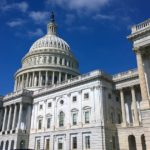The Supreme Court is Forcing Congress to Do Its Job

The administrative state refers to the multitude of federal agencies and departments responsible for implementing and enforcing laws. These agencies possess substantial power, often creating and implementing regulations that have significant implications for the American people. While administrative agencies are essential for the efficient functioning of the government, they must not usurp Congress’s legislative authority, no matter how hard the legislative branch tries to abdicate their responsibility.
Congress, as the elected legislative body, is responsible for making laws that address the needs and concerns of the nation. However, it has increasingly delegated some of its lawmaking authority to administrative agencies, resulting in a phenomenon known as the “administrative state.” This delegation can sometimes lead to a lack of direct accountability and oversight, allowing agencies to make rules with limited involvement from Congress.
Supreme Court’s Intervention
Recognizing the potential dangers of an unchecked administrative state, the Supreme Court has taken a proactive approach to hold Congress accountable for its lawmaking responsibilities. In doing so, the Court has emphasized the significance of Congress’s role in creating and reviewing administrative regulations. By overturning EPA decisions and other administrative rulings, the Court has sought to establish boundaries and reinforce the importance of congressional involvement.
One illustrative example of the Court’s concern can be seen in the 2019 case of Kisor v. Wilkie. The Court addressed the issue of deference to agency interpretations of their own regulations, known as Auer deference. The Court ruled that deference should only be granted if the regulation is genuinely ambiguous and that agency interpretations should not override the court’s independent judgment. This decision curbed agency discretion and reasserted the judiciary’s role in interpreting administrative rules, forcing Congress to assert its authority.
In addition to asserting the judiciary’s role, the Supreme Court has also compelled Congress to be more active in overseeing administrative actions through its decisions. For instance, in 2015, the Court ruled in Michigan v. EPA that the EPA had failed to consider costs when regulating mercury emissions from power plants. The decision emphasized that agencies must consider both the benefits and the costs of regulations. This ruling demonstrated the Court’s commitment to ensuring that administrative agencies operate within the boundaries set by Congress and that they are held accountable for their decisions.
Conclusion
The US Supreme Court is finally playing a vital role in holding Congress accountable for its legislative responsibilities, particularly in relation to the oversight of administrative state rules. Through decisions such as overturning EPA decisions, the Court has taken steps to reinforce the importance of congressional involvement in the rule making process and limit the potential overreach of administrative agencies. By curbing agency discretion, emphasizing the judiciary’s role, and emphasizing the need for cost-benefit analysis, the Court has encouraged Congress to fulfill its lawmaking responsibilities more diligently.
While the administrative state remains a significant component of the US government, the Supreme Court’s decisions highlight the need for Congress to actively engage in overseeing and shaping administrative regulations. The Court’s interventions serve as a reminder that Congress must not abdicate its authority to administrative agencies but rather assert its role as the elected body responsible for crafting laws that reflect the will and needs of the American people. As the nation’s highest court continues to deliberate on cases involving the administrative state, it will undoubtedly play a significant role.
The media and progressives are trying to position the Supreme Court as a radical body with an overreaching agenda. However, based on the majority of decisions in recent years, the opposite seems to be the case. After decades of legislating from the bench, this Court seems adamant about making Congress do its job.
RELATED











